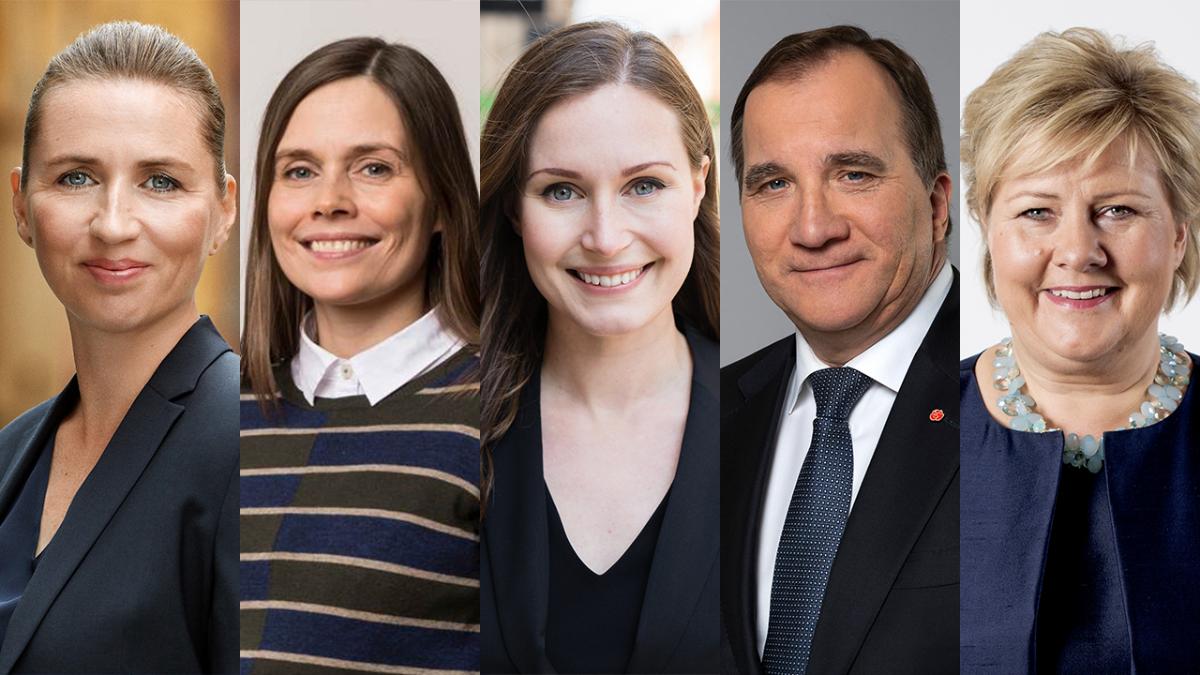The Nordic Prime ministers: Pushing for Gender Equality

Today, on the international women’s day, we all have good reasons to celebrate the global progress on gender equality. Unfortunately, and to the surprise of many, this hard-earned progress is being openly challenged. We, the Nordic Prime Ministers wish to express our grave concern towards the current pushback against the rights of women and girls.
We have witnessed a global surge in regressive policies, often undermining universal human rights and protections against sexual and gender-based violence. This is happening just as we thought this year to be one of celebration, marking the twenty-fifth anniversary of the Beijing Declaration and its Platform for Action.
The Nordic success on gender equality is a result of targeted government policies and robust civil movements, but also deeply rooted in international legal frameworks. We, the Nordic Prime Ministers, therefore wish to reiterate our joint commitment to the protection and promotion of the rights of women and girls, and more generally of universal human rights.
For over 40 years, the Nordic countries have worked collectively to promote gender equality. This has resulted in stronger economies and happier and more prosperous societies. Key public policies include well-paid, shared parental leave, and universal and affordable high-quality childcare. If applied properly, these policies enable women to participate in the labour market and public decision-making, while making space for men to share domestic responsibilities. This has enormous impact for gender equality at work and at home, as well as leading to more equality in public decision-making and in leadership positions. Increased women's participation and more diversity in leadership have proven not only to be the right thing to do, but also the smart thing to do. It leads to better decisions, often more profits and to transparency, fairness, innovation and better corporate social responsibility. The private sector has always been crucial to this work, both benefitting from and contributing to the Nordic welfare model.
Yet, despite the remarkable progress, gender-based structural inequalities still exist across our region. The unemployment rate among women born outside of the EU is too high and additional measures and policies are required to combat this. As in other countries, the discrimination multiplies when gender intersects with other protected characteristics, such as race, ethnicity, sexual orientation and disability. Gendered trends are persistent in the labour markets where women make up the majority of teachers and care workers and men are more likely to work in transportation, construction and industry. Men are also overrepresented in leadership positions.
We are deeply concerned that despite massive efforts we have not managed to eliminate violence against women, which the #metoo movement so clearly exposed. In short: we have made enormous achievements, we are not done, but we are deeply committed to continue the work.
On the international level, all the Nordic countries have put women’s rights at the core of our foreign and development policies. We are active participants in all major international organisations that address universal human rights and work to eliminate discrimination against women and girls. All Nordic countries have ratified the European Council Istanbul Convention on preventing and combating violence against women and domestic violence. We are strong advocates for women’s sexual and reproductive health and rights (SRHR) and we oppose any attempt to refuse women the right to legal and safe abortion and other health services. Harmful practises, such as child marriage and female genital mutilation, should belong in history books.
All the Nordic countries have developed plans to accelerate concrete actions to mark the 25th anniversary of the Beijing Declaration and Platform for Action, including by leading or supporting UN Women’s Generation Equality Forum Campaign. We are deeply committed to realizing the UN Sustainable Development Goals. Five years into the plan, it is evident that SDG 5 on gender equality is the goal most countries are furthest from reaching. Therefore, we will continue using our voice internationally to share our experience of moving towards gender equality and the benefits it has made in our societies.
Today’s generation of young people is the largest the world has seen. They are active and key constituencies for the realization of gender rights and justice. For this reason, the Nordic countries will provide a platform for young people and their visions. We, the Nordic Prime Ministers promise to work with young people to achieve gender equality by 2030. And we strongly urge the global community to do the same.
World leaders need to step up to build a sustainable future were women and girls across the world from all different social backgrounds have access to education and health services, have equal opportunities in jobs and to take part in public life, and are free from the threat of sexual and gender-based violence.
Today, on international women’s day, we, the Nordic Prime Ministers, reiterate our commitment to this vision.
Collectively, we can do it.